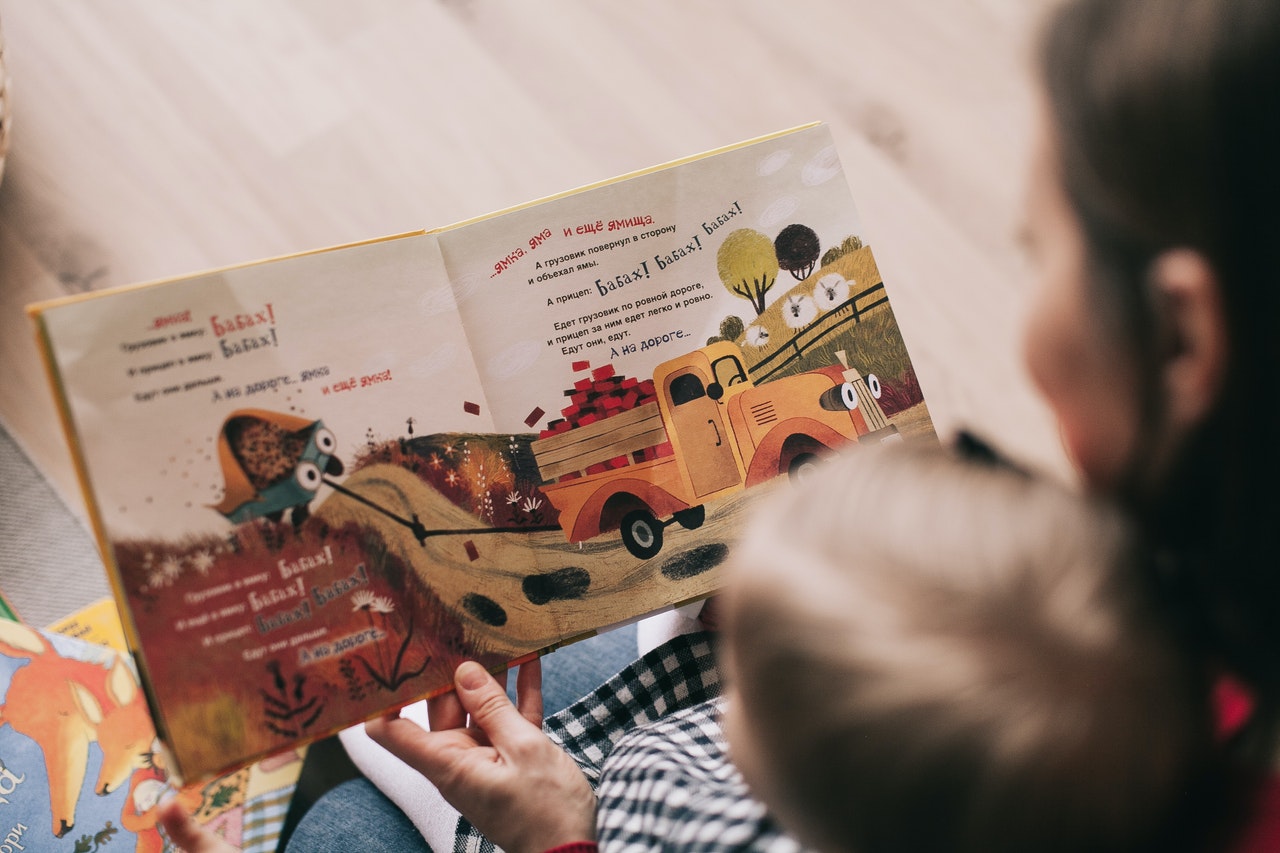Every book lover will agree that reading not only brings you lots of benefits, but it can take you to places you couldn’t imagine. Every book and every page can transport you and make you feel you are part of the story. So if you are a book lover, or maybe you are just trying to improve your reading habit, encouraging your kids to read, or simply want to know more about books, keep reading. From “How to start a good reading habit” to “What is the perfect lighting for reading,” we gathered the best book blogs to give us their expert opinion on tips, advice, and everything we need to know on how to be a perfect bookworm.
- How do you create a reading habit at home?
Every situation is different. With a million rugrats crawling around, it can be a bit more difficult to start reading more, but the first step is always going to be gifting yourself the time to actually do it. Get comfy. Leave your phone in another room (or throw it out of the window). Be where you are, and get whichever minutes you can in. It helps me to be reading multiple books at a time because sometimes, you only have time for a short story, a poem, an essay, while other times you can read a full chapter or two. Don’t put negativity in your reading space; this time is yours.
– Joe Walters, founder at Independent Book Review
- How to create the perfect reading nook?
The perfect reading nook should be a reflection of you not only as a reader but as an individual. First, choose the area you’d like to create your nook. Once chosen, bring in a comfortable piece of furniture if an existing sitting place doesn’t already exist. Finally, fill that space with items and decor that make you feel comfortable and relaxed, such as a snuggly blanket or perhaps some autumnal decor if you find autumn to be very inviting for readers, and get tucked in for a relaxing read.
– Anthony Avina at Author Anthony Avina’s Blog
- Which is the best genre if I’m starting a reading habit?
If you are not an avid reader but looking to become one, I highly recommend crime fiction. The beauty of books in this genre is their accessibility, in terms of writing style and similar feel to the suspense-filled TV crime dramas so many of us are already fans of. Countless long-running detective series’ offer the variety of a different crime puzzle to solve in each novel (and satisfaction of few loose ends left untied) along with engaging lead characters that we can invest in and build a reading relationship with over time. Plus, bestselling crime novelists are often prolific writers, which means extensive back catalogues for binge-reading and not long to wait until you can get your hands on their next new novel.
– Jo at Booklover Book Reviews
- How to set a reading goal and stick to it?
I think daily reading is one of the healthiest things you can add to your life. Research has found numerous benefits of reading, including lowering your blood pressure, boosting your sense of empathy, and helping you sleep better at night. But reading doesn’t become a practice until you set a daily goal for yourself. The simplest way to do this is with smartphone notifications. Choose a time when you know you can read for 15-30 minutes without interruption and set a daily reminder on your phone. However, the absolute best way to set a reading goal and stick to it is to start a book club! Whether you have one book buddy or 20 people in your club, you will find yourself reading more whenever you read together. It’s a fun way to hold yourself accountable and have better discussions about the book.
– Jason Boog, Editorial Lead at Fable
- How can I improve my reading comprehension?
It’s a slippery slope to feeling sad and unaccomplished when you find yourself reading, but not truly comprehending the full meaning of a text. However, like any other skill, reading comprehension can be improved using a few easy strategies. We recommend using the Bookly app to help you improve your vocabulary and annotate your books within the app. It’s also important to make sure you summarize what you read, putting the information in your own words. Sometimes it might also help to read aloud, as this minimizes distractions and helps you process text better.
At the end of the day, the more you practice, the better you become at understanding what you’re reading.
– Gabrielle at Bookly

- How to involve my kids in reading?
– Stacey at Whispering Stories
- 5 tips to reading aloud with kids
- Let your kids select the books they want you to read. You can keep them alongside their toys to create an association with fun!
- Select a comfortable space to read together. There are plenty of affordable ways to create a “reading nook” or “at-home library.”
- Kids love voices and drama in stories! Try using different voices for different characters.
- Young children have a hard time sitting still, aim to read together for 5-15 minutes at a time. Give them the freedom to wiggle their bodies if they need to.
- Most importantly be patient and encouraging. Nurturing a love of reading takes time as you build reading routines at home.
– Mariela Rodriguez at Bookspring
- How to create a reading culture at home?
Let your kids see you reading and make it clear you find books interesting and essential to your life. Keep a variety of books everywhere and look through them often. Ask your kids about their favorites (and tell them about some of yours), let them read what they like (including graphic novels), and encourage their interests. Designate the last half hour before bed as “book time”–read aloud or sit quietly together while you each read your own books. There’s no better way to decompress from the day and associate books with comfort and bonding!
– Allison at Mind Joggle
- What are the benefits of audiobooks vs reading?
- Ebook or hardcopy, which one is better?
“Better” may not be the right word. Both have Pro’s and Con’s. I’ve got to go with Hard Copy. Although more expensive and not as convenient as an Ebook just the feel and look of a real book in your hands is so much better to me. Plus what else would you put on that nice bookshelf that you just bought? But of course, I can see how Ebooks could save School Districts money but for me, I want a book in my hands.
– Dick at Book Room Reviews
- How to start or join a virtual book club?
A virtual book club is a great way to stay in touch with old friends or meet new friends. Especially when you can’t get together in person. Get a group together and pick a book. You can meet via a video conferencing tool like Zoom, or use our book club app Bookship. It has free, secure video chat as well as book recommendations, group calendars, and a Café where you can meet new readers.
– Mark Watkins at Bookship
- How to increase the number of books I read monthly?
I always get asked regarding my reading habits and how I get to read so many books and still manage to juggle everything else in my life. Reading induces creativity and helps you mature your conception of complex problems. You grow intellectually, and at the same time, it comforts you in so many ways, which you may have never experienced. So can you increase the number of books you read?
Studies have shown that every year the average number of books being read in the United States decreases. This, I believe, is due to the hectic lifestyles we are modernizing into. Making time for such a rewarding thing, in my opinion, is crucial for your mental stability, growth, and mood. Hence, I will share my secrets on how I read so many books a year with you, for it is just as beneficial as exercising every day.
Secret Number One: Set a goal when you start
Before reading a book, pick how many pages you wish to indulge in before setting it aside. For instance, promise yourself that you will read 50 pages before you get up to do anything else no matter what. You can increase the number of pages as you become a more regular reader.
Secret Number Two: Practice Speed Reading
This is a technique that is taught and is very effective. Speed-reading is especially beneficial if you are in university and you have piles of books (over 300 pages) you need to read in a short amount of time.
These techniques include reading in-group words instead of word by word or forcing your eyes to move faster by using a ruler or pen across the page.
Secret Number Three: Read before you sleep
Reading before you sleep relaxes you and tires your eyes in assisting you to sleep better. It allows you to put everything you have done aside during the day and just sweep you away into the world in which your book takes you.
Next time you feel that you have no time to read, think again. You have more time than you think.
– Jeyran Main at Review Tales
- How to keep track of the books I’ve read?
As a reader, book blogger, and someone who really needs to keep track of books I’ve read for review purposes, I have several different ways I keep myself on track. I utilize Goodreads by adding books to my want-to-read list and then categorizing them by their genre and adding them to my “for review” shelf if applicable. Those books are then moved to a shelf that tells me when I read them and where I can find reviews for them after I’m finished. I also have a spreadsheet where I keep track of review books by title, author, pub date, genre, and where I received the review copy. As soon as the book is read and a review is written and posted, I move them down and show them as completed. This may sound like overkill, but I also have a note on my phone where I keep track of release dates and what week I plan on reading, whether they are books sitting on my TBR I hope to be enjoying soon, review books, or new releases I am excited about. I need all of these tools to help me keep track of books I both want to read and books I’ve finished and enjoyed.
– Angela at SmexyBooks
- How to take care of my books
The three things books dislike most, whether new or antique, are sunlight, fluctuations in temperature, and moisture. So avoid direct sunlight as book covers will fade over time and, in the case of leather bindings, risk drying and cracking. Try not to place books above or too near to radiators or other heat sources, as they may be prone to warping, and avoid excessive moisture wherever possible. Attics are not recommended.
Other than these points, it’s not advised to pile books flat on top of each other as the spines may become damaged. Instead, place them upright on a bookshelf. Finally, we all love to hold our books but never touch valuable ones after eating greasy foods, as paper will absorb the oils and become permanently stained.
– Robert Chalk at Rare and Antique Books
- What is the best genre to start reading in a second language?
The best genre is one that will keep the reader engaged and interested. Young children may enjoy stories that they are already familiar with as they will understand the basic content of the story, and can focus on learning words in the new language. Bilingual books are helpful as children can read the story in their home language and then read it again in the second language, learning new words and phrases. Folk tales and fables are popular among all ages – even adult second language learners will enjoy a good fable and it won’t be as difficult to understand and read through as a longer story.
– Anneke Forzani at Language Lizard
- How to write a book review?
As an ardent reader, I often check book reviews when deciding which book to pick up next from my never-ending TBR. The reviews that mention the USP of the book and how it made the reader/blogger feel always help me decide. As a reviewer myself, I like to make sure never to get personal about the author in case I do not particularly enjoy a book.
– Debdatta Dasgupta at Bookish Indulgences
- How to start my own book blog?
To start your own book blog, you first need to choose your blog name and the platform you want to be on (WordPress, Blogger, for instance). Try to pick a name that represents you, what you love and a name that is unique, just as well. The fun part starts next: building your blog from the ground up! If you’re serious about book blogging, want to have a platform that looks professional, find a host for your blog. If you’re not certain, you can start with free platforms. Choose a theme and colors that are visually appealing for your website and represent you, too, without neglecting readability. Then, start creating the basics on your blog: your “about me” page introducing yourself, your review, and privacy policy pages. Once all of this is done, you can start blogging! Start a new blog post recommending books you love, write a book review, visit other book blogs and interact with them, set your social media pages, and start interacting and promoting your blog there… Most of it all, HAVE fun!
– Marie at Drizzle and Hurricane books
- Where should I start if I want to write my first book?
The first thing to ask yourself is why do you want to write your first book? Like running a marathon, writing a book is a long process that will require dedication. But if you have that reason – whether it’s an untold story you’re passionate about, or a love of the freedom of creative writing – that will keep you going. Start small. Write a little bit every day. Don’t give up if it isn’t perfect straight away. See what characters, themes, events start to emerge. If you want guidance, inspiration, or motivation, choose a respected online writing course and learn from published authors. At The Novelry, we offer step-by-step guidance from start to finish: courses, tips, and a thriving community of writers just like you.
– The Novelry
- What is a ghostwriter?
Ghostwriters are professional writers hired to write on behalf of another person, such as a business person, politician, or celebrity who doesn’t have the time or the skill set to do it themselves.
People hire ghostwriters to write books, speeches, articles, or other works in a client’s voice or style. In some cases, ghostwriters are tasked with researching on behalf of a client. Also, ghostwriters sometimes get hired to write smaller portions of the finished product, such as a chapter or section of a piece. The finished product will be credited back to the client regardless of the work.
– Alinka Rutkowska, CEO at Leaders Press
Whether you are starting a reading habit or you are a complete bookworm, these tips and advice from the experts will give you great insights on everything you need to know to keep enjoying a good read.




